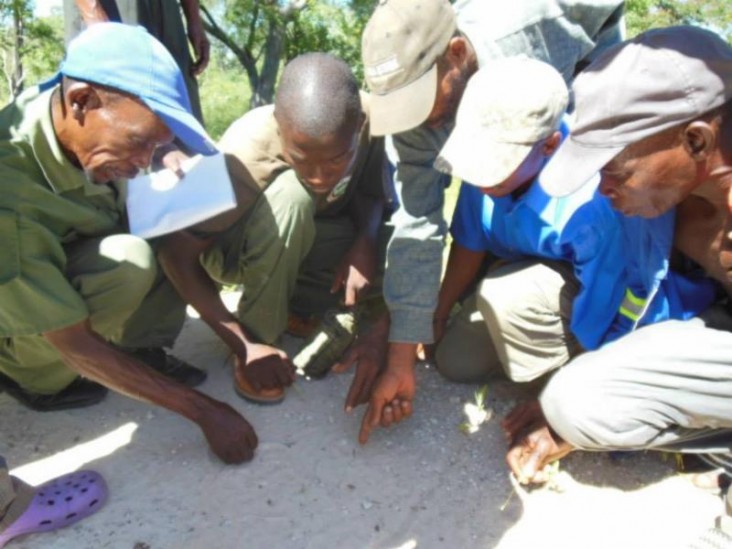
Background
The Okavango River Basin is one of the world's largest inland water systems. This shared vital natural resource for the Southern African countries of Angola, Botswana and Namibia is a rich, but fragile source of biodiversity supporting the livelihoods of approximately one million people. USAID is working to ensure that there is a strong communications aspect to its work to raise awareness and increase participation in wildlife conservation.
USAID Contribution
This internationally important region is supported by a partnership between USAID and the Permanent Okavango River Basin Water Commission. USAID's Southern African Regional Environment Program (SAREP) is a $23 million, five-year program which began in 2010. The program promotes a transboundary approach to conserve biodiversity and ecosystems, while strengthening good governance and resilient livelihood options for millions of Africans depending on the basin.
The Okavango Delta is home to elephants, rhinos and other natural wildlife. Poaching and unsustainable harvesting are among many threats faced by the Basin's wild inhabitants. Building on a successful, decades-old, community-based system, SAREP aims to shift incentives away from illegal, risky and environmentally destructive practices to legal, lucrative and sustainable alternatives. These alternatives include ecotourism, conservation agriculture, fisheries and natural product harvesting and marketing. As Doreen Robinson, USAID/Southern Africa's regional environment advisor noted, "People protect their wildlife when they benefit from it."
Working with Local Partners
Combating wildlife trafficking requires support at the government and community level, which is why USAID and local partners have a wide-reaching outreach and communications plan in place to help increase awareness and participation. Media events were held to highlight government and donor community support, while local leaders and press were engaged to help target audiences in at-risk areas. USAID partners work closely with communities in the Okavango River Basin, providing people with incentives to protect wildlife, including measures to minimize the human-wildlife conflict.
Communities and governments are also improving their land use planning skills through new science-based Geographic Information System tools that help local and national governments allocate land for conservation and reduce human-wildlife conflict. Community-supported conservation areas support wise use of natural resources to improve lives through a healthy environment that provides food and income. As a result, residents move away from destructive patterns and are motivated to protect their wildlife. Nearly 4,000 people in 50 communities have benefited from the creation of these areas since USAID's inception.
At the same time, the program helps local people protect the Southern African Delta. Area managers develop guidelines for managing and protecting wildlife while training community game guards to keep better track of wildlife throughout the Okavango River Basin. The program currently works closely with 35 partner communities in key biodiversity-rich areas of Angola, Botswana and Namibia to promote the use of a data-based tool for monitoring trends in natural resource populations on their land. By empowering local people with skills, data, and guidelines to measure changes to their surrounding environment, the tool - called the Management Oriented Monitoring Strategy (MOMS) - helps communities to identify adverse changes to local ecosystems, including suspected poaching, and to take prompt action to mitigate them.
USAID, in tandem with other partners, is promoting dialogue and capacity to tackle illegal wildlife trading. USAID plans to provide a dedicated special adviser to report to Botswana's Minister of Environment on conservation and anti-poaching issues.







Comment
Make a general inquiry or suggest an improvement.